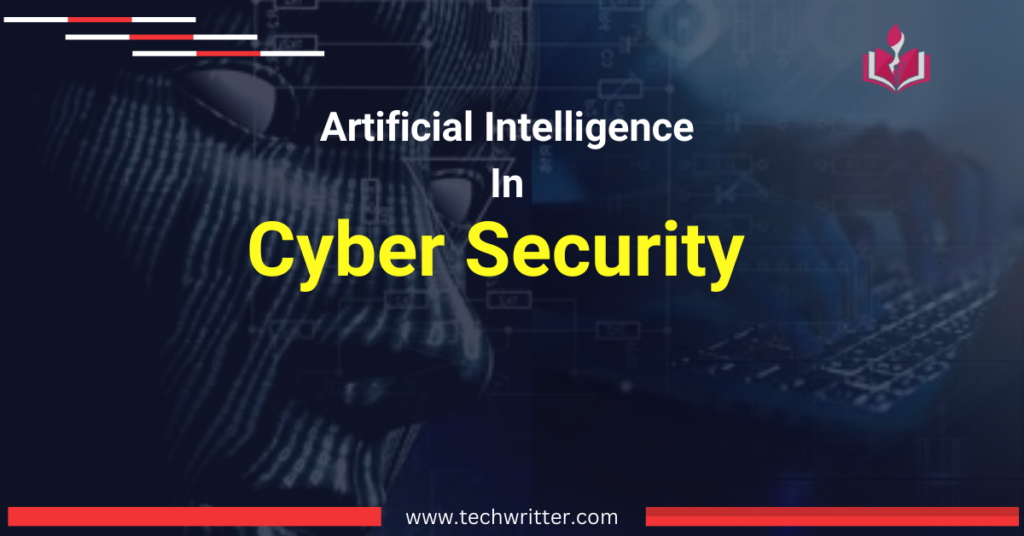Do you have your data on the internet, and are you worried about your credentials? Are you concerned with cyber security? If yes, then keep one thing in mind technology is evolving day by day and concerned with cyber security. Artificial intelligence is also going to join the war of security against cyber threats and scammers for users’ safety.
Hopefully, AI will succeed when integrated into cybersecurity because of its advanced approaches and techniques. I have compiled some data-driven insights to provide invaluable information about the integration. If you are interested then keep reading and know more about AI in Cyber Security.
The Intersection of AI and Cybersecurity
Enhancing Threat Detection
AI is an excellent tool for identifying and reducing cyber dangers. It is capable of analyzing enormous volumes of data at breakneck rates. Machine-learning algorithms can detect anomalies. They can raise alarms in real time and learn from previous attack patterns, allowing quicker reactions to possible breaches.
AI systems can adapt to new threats by continuously learning from new data, which increases their effectiveness in fending off changing attack vectors.
Advanced Malware Detection
Traditional antivirus software frequently has trouble keeping up with malware overgrowing. Through behavior analysis, sandboxing, and heuristics, AI-driven cybersecurity systems can identify malware that hasn’t been seen before, offering a proactive line of defense against zero-day attacks. AI can identify and isolate possible threats, stopping attacks before they can do any damage.
Securing IoT Devices
Our networks now contain several vulnerabilities brought about by the Internet of Things (IoT). AI lessens the risk of large-scale attacks using insecure smart devices. This helps secure IoT devices. The exponential growth of IoT devices makes AI’s role in securing this networked environment even more crucial for protecting user privacy and averting future cyber emergencies.
Authentication and Access Control
AI can improve authentication processes through behavioral analysis, biometric recognition, and context-sensitive access control. This improves the security of sensitive data by lowering the likelihood of unauthorized access and identity theft. AI can detect suspicious activity and initiate additional authentication processes by examining user behavior patterns.
AI in Incident Response
Rapid Incident Analysis
Every second matters when a cyber incident occurs. AI can quickly analyze accidents, pinpoint the underlying cause, and suggest the best action to correct them. AI enables security teams to concentrate on strategic decision-making and response coordination by automating incident investigation, resulting in quicker resolution and less downtime.
Intelligent Security Orchestration
AI-driven security orchestration and automation can make incident response workflows more efficient. AI can assist in coordinating efforts to improve incident response by integrating multiple security tools and technologies. Automated responses to low-level threats free up human resources for handling more challenging security duties, improving the overall incident management procedure.
Read also: How to Start a Successful Blog – A Complete Guide
The Challenges of AI in Cybersecurity
Adversarial AI
Cybercriminals are experimenting with using hostile AI to undermine security systems as AI develops. Adversarial AI involves creating inputs purposefully to trick AI systems, reducing their ability to detect threats. To combat this new danger, researchers and cybersecurity specialists must continuously endeavor to strengthen AI’s resistance to adversarial attacks and design robust defense systems.
Data Privacy Concerns
For training and analysis, artificial intelligence in cybersecurity primarily relies on data. However, maintaining data privacy while gaining useful insights continues to be difficult. It’s critical to strike a balance between data access and privacy protection. Organizations must use strict data protection methods, like encryption and anonymization, to protect user privacy and adhere to data regulations.
The Future of AI in Cybersecurity
Predictive Threat Intelligence
AI will develop to anticipate potential cyber dangers before they manifest, enabling security professionals to take preventative action and keep up with hackers. AI-driven predictive threat intelligence offers valuable insights to bolster defenses and stop upcoming assaults by analyzing previous data and recognizing trends of forthcoming threats.
Autonomous Security Systems
It will become more common for autonomous security systems driven by AI to make choices and take actions without human intervention, providing real-time protection and lightening the load on security staff. These systems will increase cybersecurity’s overall resilience and adaptability by utilizing AI’s capacity to identify threats and take action at previously unheard-of speeds.
The Final Note
The integration of artificial intelligence in cyber security is not only a trend but a necessity for businesses and individuals to save their credentials. Instant data analysis capabilities, threat detection, and advanced security measures create a stronger field of cybersecurity to avoid problems and scammers. AI is here to predict our future, like saving our digital assets and more.
FAQs
AI plays a crucial role in cybersecurity by enhancing threat detection, detecting advanced malware, securing IoT devices, and improving authentication and access control.
AI enables rapid incident analysis and intelligent security orchestration, streamlining incident response workflows and minimizing the impact of cyber incidents.
Challenges include adversarial AI cyberattackers’ use and concerns about data privacy while extracting insights.

